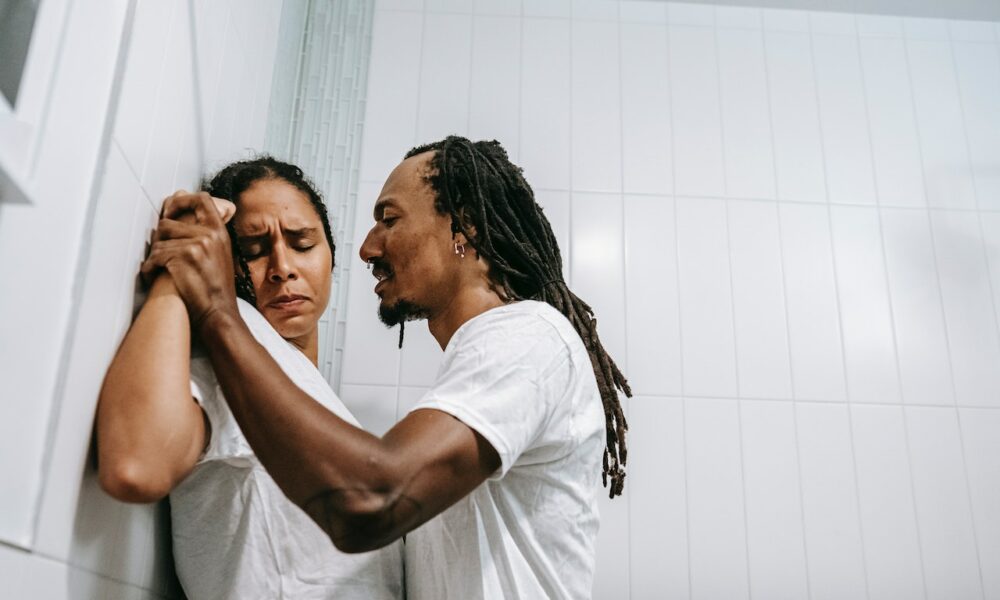Every year, from the 25th of November to the 10th of December, we join millions of people around the world to talk against gender-based violence and promote a world where women and girls are safe and their rights are respected.
This year’s theme: UNiTE! Activism to end violence against women and girls captures the very essence of this campaign: the need to come together to end violence against women and girls, break the silence on GBV, and end the stigma on survivors.
Every year, we quote reports that show that in this part of the world (and globally) the war against GBV is not won. Azeezat Adedigba for HumAngle collated the cases in review from media reports (unreported cases are excluded from this number). Azeezat reports that between January and April 2022, over 335 persons have experienced different forms of sexual and gender-based violence (sexual abuse, physical abuse, and spousal abuse).
Sexual harassment has been so normalised. It seeped gradually into every cranny of the country and eroded the line between sexual sanity and insanity. We planted the seed, we watered the plant and now we wonder how we have gotten to this stage where a woman is raped every five hours in Nigeria. Social vices are like little flames of fire, if you don’t quench them immediately, they grow into infernos that cannot be easily put out.
In the last 10 months, DSVA reportedly received over 4800 cases of domestic/sexual violence. In 2020, Nigeria recorded 717 rape cases in the country between January and May. The then Inspector General of Police, Mohammed Adamu, said one rape case was reported every five hours.
The World Health Organization (WHO) released some troubling data, estimating that 1 in 3 women would experience physical or sexual intimate relationship violence or non-partner sexual assault in their lifetime. The 2018 Nigeria Demographic and Health Survey (NDHS) also showed that 30% of females between 15 and 49 years had experienced sexual violence.
This violence against women comes in different shapes, colours, and sizes. And because women are grossly underrepresented in every sector, they have never gotten the justice they truly deserve.
The statistics sound like mere numbers, but these are real people. People like you and I; breathing, walking, living. Girls and women whose lives are being reduced to nothing and made to revolve exclusively around men. People whose lives are being cut short, like the late singer Osinachi Nwachukwu, who was allegedly beaten to death by her husband. They are girls and women who are forced to have children at a young age, and are left on their own to handle the issues that result from it. Girls and women who have had their rights violated, their voices muffled, and their mouths gagged. Women forced to make babies that will be sold away, trafficked to other countries for sex work, or beaten black and blue by their spouses. These are women and girls who are left alone to battle the aftermath of this violence meted out to them.
It is important to bring to light that gender parity around the world is yet to be achieved and the fight against rape (and rapists) is yet to be won.
When we talk of violence against women, we are quick to point out the swollen faces or broken body parts. But there are a million and one ways women and girls are being violated, daily. Like taking their rights away from them. Like the policeman asking a rape survivor “what were you wearing.” Like parents marrying off their little girl so their creditor can clear their debt. Like women being forced to give birth so their babies can be sold. Like husbands insisting their wives must never work. Like bosses paying their female staff lesser than their male counterparts. Violence against women manifests everywhere – in all shapes and sizes, in the subtle and in the blatant.
We must never get tired of sensitizing people about sexual harassment and rape, calling for equality, and pushing for justice for all victims of sexual violence.
As the world comes together to unite against GBV, it is important to be a part of this campaign, lend your voice and commit to this cause.
On social media, you can create awareness about the campaign and the plight of women and girls, especially in underserved communities. There are many organisations and NGOs dedicated to tackling issues of GBV; you can support them financially.
Another way to help eradicate gender-based violence in our society is to not cover up rapists or sexual offenders whether they are your brothers, uncles, sons, or friends. We cannot end GBV if you look away or cover up abusers.
Join the campaign today and help the world get rid of violence against women.
***
Photo by Alex Green from Pexels
Share your story or advertise with us: Whatsapp: +2347068606071 Email: info@newspotng.com













